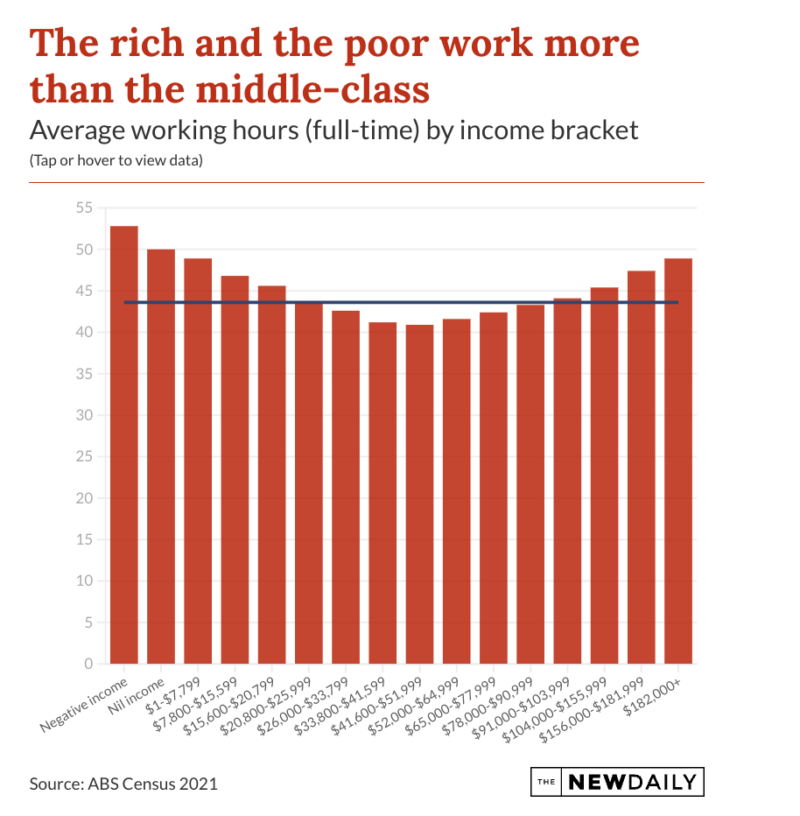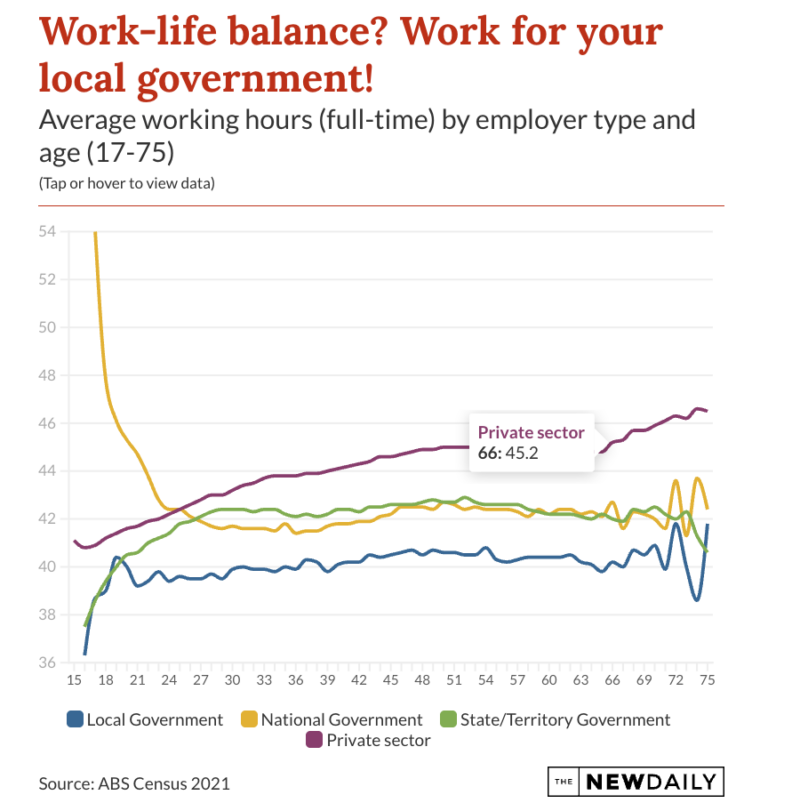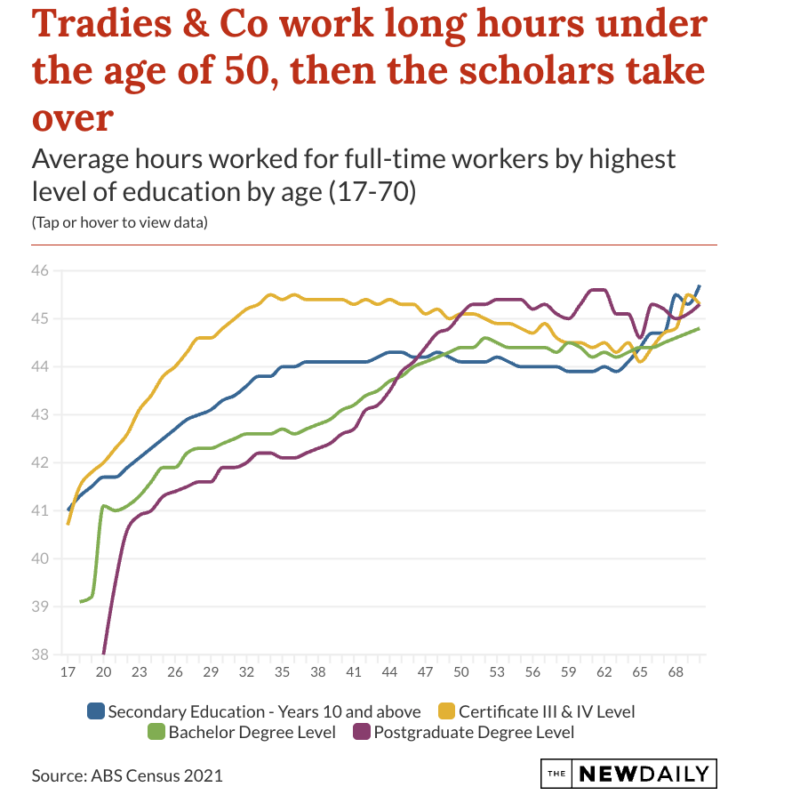How many hours a week do you work?
Forty? Or less? Probably more.
Either way, it's important to have a good balance between the time you spend at work and the time you spend on personal pursuits and activities.
In his regular column in The New Daily, Simon Kuestenmacher discussed the number of hours Aussies work full-time in different jobs.
He unpacked which of these career choices offers the best work-life balance.
What do the rich and the poor have in common?
Well, both work long hours.
In fact, only those in the middle-income bracket enjoy the most modest working hours.
Source: The New Daily
Simon said:
"Considering the skills shortage, low-income workers (if organised) stand a good chance of improving their work conditions and re-establishing the social contract that promises a decent lifestyle in exchange for hard work.
Government jobs have their pros and cons.
A big fat pro is working hours.
If you really want to prioritise your work-life balance, get a job in local government.
Throughout the whole life-cycle, employees in local government work fewer hours than people in state or federal government."
Source: The New Daily
He further said:
"In the private sector you work longer hours the more senior you get, and work-life balance worsens year after year.
Private businesses wanting to attract staff during the skills squeeze will want to find a mechanism to guarantee (not just promise!) fair working hours.
Millennials that are thinking about entering the family formation stage of their life cycle might want to grab a government job.
Generous parental leave packages and shorter work days are attractive drawcards for young parents in the workforce."
So basically for a good work-life balance, become an employee (43 hours per week), not a boss.
Or better yet, join the public sector, ideally local government.
For longer working hours, join the family business as a contributing family member (51 hours per week).
Tradies & Co work long hours under the age of 50, then the scholars take over
Achieving work-life balance is an uphill battle for business owners.
At the same time, your highest level of education is also a good general indicator of how many hours you will work.
Source: The New Daily
Simon explained:
"Physical labour in your 50s just isn’t possible at the same rate as it was in your 30s.
Highly educated folks with postgraduate degrees only get going in their 50s.
Laptop based jobs are much softer on the body than trade jobs and long hours can more easily be tolerated."
The best and worst jobs
The craziest working hours are by people who work on bursts such as trekking guides and FIFO workers like miners.
On the other hand, the most easy-going working hours are had by people working in libraries (librarians, archivists, and their assistants).
Obviously, these workers have plenty of spare time at their disposal.

















